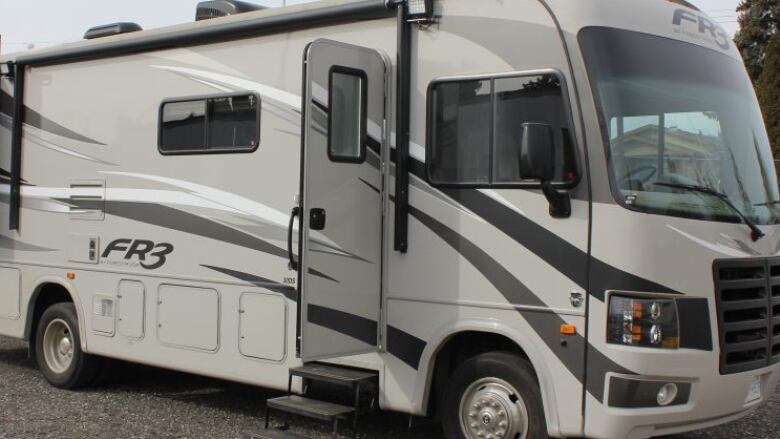UBC study gives Kelowna, Kamloops mobile drug consumption sites mixed reviews
Report finds drug users satisfied, others less so

A new study measuring the effectiveness of two mobile supervised consumption sites in Kelowna and Kamloops, B.C.,found they provided a useful service despite some challenges.
Participants in the University of British Columbia study, which was published in the Harm Reduction Journal,cited limited operating hours, not enough room and service disruptions during inclement weather as factors that held the sites back.
Trevor Corneil, chief medical officer with Interior Health, which operates the sites,said the popularity of the service showed that it was needed.
"This did fill a gap," Corneil told CBC Radio'sDaybreak Kamloopshost Shelley Joyce."It's clear from the number of client visits with both services in Kelowna but also in Kamloops that there was a need."
The sites opened in April 2017 in Kelowna and June 2017 in Kamloops.Originally theyonlyprovided harm reduction supplies like overdose-reversing Naloxone kits, but in July of the same yearHealth Canada approved them assupervised injection sites.
The two mobile consumption sites were set up in retrofitted RVs each with enough space for two clients at a timethat would drive back and forth to two locations in each city.
Corneil said he recognized the the benefits and drawbacks ofsmall mobile sites.
"It's a smaller space for providers, it's more difficult to provide that extended care that some people need," he said. "There's only so many snowstorms that these these mobile units can handle."
Corneil said the health authority will be analyzing the results to determine whether a permanent site is needed.
"We're certainly trying to sort out whether whether that's a viable option in either Kamloops or Kelowna," he said.
Survey results mixed
The study compiled data through statistics, surveys and interviews with drug users, health workers, and community members.
Between August and November 2017, the Kelowna site had6,105 visits and the Kamloops site registered 1,865 visits, according to the report. Site workers reversed 23 overdoses in Kelowna during that time and seven in Kamloops.
There were no overdose deaths at either site.
Over 90 per cent of drug users surveyed were satisfied with their experience using the sites but less than half were happy with the operating hours.
At the time of the study, the sites operated from Tuesday to Saturday and spent four hours each at two locations per day.
Health care workers complained of limited space at the sites that prevented them from responding effectively to overdoses or engaging clients in private conversations.
Most Kelowna business owners and residents were supportive, while 50 per centin Kamloops were opposed. Negative comments included concerns about an increase in drug-related activity in the area and concerns for public safety.












_(720p).jpg)


 OFFICIAL HD MUSIC VIDEO.jpg)
.jpg)



























































































